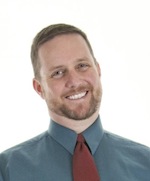 What’s the difference between a job and a vocation?
What’s the difference between a job and a vocation?
It’s the difference between asking, “What do you do?” versus, “Who are you?” It’s the difference between a pile of ingredients and a fresh loaf of bread.
A job is simply a task that we perform for hire. But our vocation is based on a sense of calling, the pursuit of purpose or mission that is ours alone. One is performed for wages; the other includes making a difference through work for which we’re not paid.
By living our mission, we become more than just another teacher, doctor, or builder. We become liberators, healers, creators.
Considering how much time most of us spend working each day, it may be wise to question why we do what we do. Is it all about attaining wealth and prestige? Or is there more to fulfillment than upward mobility?
Most would welcome shedding the stress of living paycheck to paycheck in order to enjoy a sense of well-being and contentment. We imagine ourselves traveling the world, enjoying the good life, surrounded by the symbols of affluence with no more financial worries.
It’s a tempting fantasy, yet many of us still choose to live our lives clinging to what we hope is a secure job just to keep those paychecks coming.
Understanding the difference between a job and our vocation might prompt us to do something more with the time we spend working. Who wants to look back over their life only to realize that their job never actually produced real abundance?
Robert Novak’s book, Business as Calling, bravely offers the idea that each of us are born into this world with a specific calling by which we can make a difference. Each calling is as unique as the person to whom it comes.
Certain innate abilities, gifts or talents are required to attain the calling. This purpose must bring a personal sense of joy and accomplishment to the person doing it. And finally, and perhaps most important, it requires effort, searching and introspection to discover one’s true calling.
Interestingly, both believers and non-believers alike attest to finding a very real sense of purpose and enjoyment when they labor in something that brings them joy and accomplishment. This is true even when the work is sometimes difficult and tedious.
Often it takes a few false starts to discover this path, but once we determine the true direction of our internal compass, we find that the universe aligns with us and our efforts begin to produce exponential results.
One of Novak’s crucial points is that by seeking to achieve in this manner, we become “involved in bringing the Creator’s work to its fulfillment.” This means that we can use our calling for the lasting benefit of others, economically and otherwise.
When we examine the lives of great people, a common thread is that each became part of something greater than themselves in order to create lasting value within their sphere of influence. Those who consciously partner with their Creator find that their sphere of influence is greatly enlarged because of the synergistic nature of the combined effort.
Prosperity is a worthy goal but loses its luster when the sole reason for becoming so is based on fulfilling selfish desires alone. Pursuing a calling that allows us to create value while lifting those around us can even be viewed as a modern application of the adage, “To whom much is given, much is required.”
When we live our purpose, our impact on the world is no longer measured by mere financial figures, but by how we’ve found and used our gifts in the service of others.
********************
 Bryan Hyde is a husband, father, disciple, teacher, guardian, reader, writer, truth seeker, stirrer of pots, radio talk show host, and PITA to those who seek dominion over others. He’s also a proud member of the Pro-Freedom Conspiracy.
Bryan Hyde is a husband, father, disciple, teacher, guardian, reader, writer, truth seeker, stirrer of pots, radio talk show host, and PITA to those who seek dominion over others. He’s also a proud member of the Pro-Freedom Conspiracy.
He does professional voice work through his company One Clear Voice.
Bryan and his wife Becky are raising their six children in Cedar City, Utah. He does professional voice work through his company One Clear Voice. He is also a frequent and popular contributor to St. George News.
Subscribe to Bryan’s blog here.






Speak Your Mind
You must be logged in to post a comment.